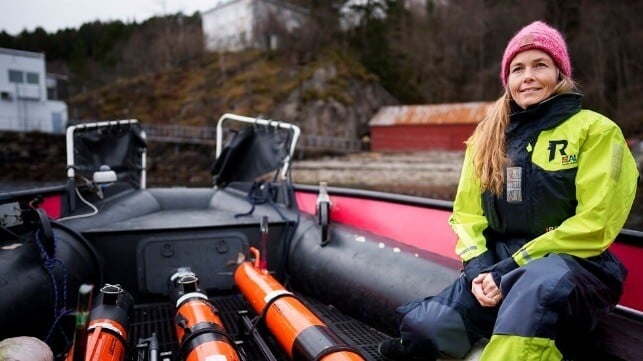EU Funds Project to Help Autonomous Systems Handle Imminent Danger

[By Steinar Brandslet]
Human beings are generally good at understanding when something is dangerous. This is an advantage that evolution has honed. People who don’t perceive danger are more often weeded out of the gene pool when faced with life’s challenges.
Robots and autonomous systems are not as good as humans when it comes to understanding risk and collaborating, which needs to be improved. This will be an advantage for the people monitoring the robots and for feeling safe onboard autonomous ships.
The European Research Council (ERC) has allocated $2.6 million to NTNU professor Ingrid Bouwer Utne and the BREACH project through an ERC Advanced Grant. This type of grant provides a large sum of money to selected researchers who have conducted outstanding research for over ten years. BREACH stands for ‘Breaching the boundaries of safety and intelligence in autonomous systems with risk-based rationality’.
“Sensing danger is important, but understanding situations and making decisions are not sufficiently integrated into robots and autonomous systems. One of the innovative things about this project is that we are going to work on risk and situational awareness for both robots and human operators in parallel. Robots need to be designed to assess risk, but these assessments should also be available to operators, so they know what the robots are ‘thinking’,” says Professor Bouwer Utne.
The professor conducts research and teaches at the Department of Marine Technology. She is part of the Marine Energy Systems and Autonomics research group, which in turn belongs to the Fjordlab section of the Norwegian Ocean Technology Centre.
Providing increased safety in many areas
As robots and autonomous systems take over more of the day-to-day operations in different areas, it also affects the people whose job it is to operate and monitor them.
“Our work will contribute to safer types of transport, more advanced mapping, inspection and monitoring of oceans and land, and more trust in autonomous systems in society,” says the professor.
If machines are to contribute more to making different decisions, this also challenges the situational understanding of the people operating and monitoring the systems.
“The BREACH project will link risk assessments to control algorithms and artificial intelligence. This will support the decisions that both autonomous systems and human operators will make,” says Professor Bouwer Utne.
The results will help autonomous systems become better at assessing risk in collaboration with human operators.
Funding research excellence
“This is an innovative and unique application of risk science that requires new theory and methods. The project is the result of several years of research work connected to the NTNU AMOS Centre of Excellence,” says Professor Bouwer Utne.
AMOS, which stands for Autonomous Marine Operations and Systems, was discontinued last year. BREACH is a multidisciplinary project in which risk science plays a key role. However, the work also includes topics related to cybernetics, artificial intelligence and interaction between humans and machines.
“I am very happy and grateful that the grant application was successful. ERC Advanced Grants are really hard to get, and the application process has been demanding. The funding is recognition of the project and a vote of confidence in me as a researcher and project manager,” says Professor Bouwer Utne.
She is really looking forward to getting started on the work.
“At the Department of Marine Technology, we are proud of what Ingrid has achieved and the recognition that comes with an ERC Advanced Grant, but we are most pleased with the opportunity it provides to develop safer autonomous marine and maritime systems – for the benefit of society and European industry,” says Head of Department Sverre Steen.
The grant will fund four PhD positions and two post doc positions, and the project will run over a period of five years.
The opinions expressed herein are the author's and not necessarily those of The Maritime Executive.

